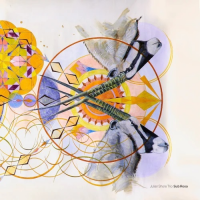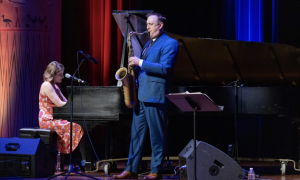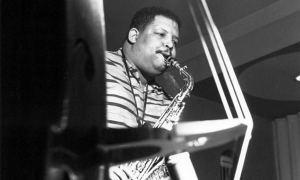Home » Jazz Articles » Catching Up With » Al Foster: Love, Peace and Jazz!
Al Foster: Love, Peace and Jazz!
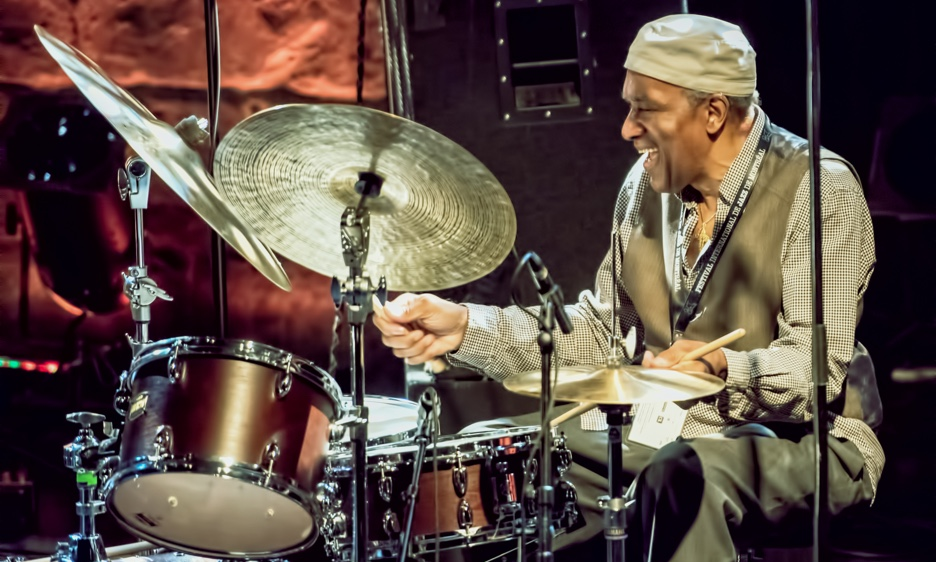
Courtesy Dave Kaufman (2015)
When I really decided that I wanted to play drums it was because I heard 'Cherokee' by Clifford Brown and Max Roach and I heard how [melodically] drums can be played.
Drumming great Al Foster has spent nearly a half-century playing with some of the greatest musicians, and on some of the most memorable albums, in jazz history, from

Miles Davis
trumpet1926 - 1991

Joe Henderson
saxophone1937 - 2001

John Scofield
guitarb.1951

Joe Lovano
drumsb.1952

Dave Holland
bassb.1946
All About Jazz: When you were starting out, what drummers' styles made you decide "This is what I want to do?"
Al Foster: When I really decided that I wanted to play drums it was because I heard "Cherokee" by

Clifford Brown
trumpetb.1930

Max Roach
drums1925 - 2007
AAJ: When did you make your first appearance on record?
AF: That was [on trumpeter] Blue Mitchell's The Thing To Do. It was [on a] tune called "Fungii Mama." That was '64, so I was 21.
AAJ: And did you have any formal musical training?
AF: None at all.
AAJ: There had to be a good deal of respect and trust from the other musicians for them to keep hiring you.
AF: You know, at that time, before fusion and all the super-technical things in music, I was able to hear the AABA form. You know, bebop... Anyway, it was easier to hear for a drummer without reading...

Art Blakey
drums1919 - 1990

Thelonious Monk
piano1917 - 1982

Bud Powell
piano1924 - 1966
AAJ: Did you have any favorite musicians you liked to work with? And from whom did you learn the most about the music?
AF: I would say in the beginning it was

Sonny Rollins
saxophoneb.1930
AAJ: You played with

Miles Davis
trumpet1926 - 1991
AF: I never cared for what I did with him in the '70s. I was a jazz drummer and I thought when he asked me to join the band I thought it was jazz. But who's gonna turn down a job with Miles Davis? He told me to check out Sly Stone, Jimi Hendrix, James Brown. So I started buying some of those records just to practice on 'em. But Miles was still playing jazz. I could hear him, playing what he played on "Tune Up."
I'll tell you a quick story about Miles. When I was 16 me and a couple of other drummers went down to Birdland. I said "Man, I'm gonna take [the album] Milestones to get Philly [Joe Jones]'s autograph. But we all saw Art Blakey pick Miles up like a baby and carry him backstage. I said "Man, I'm gonna get Miles' autograph!" So I went to the door and waited for him to come out. And when he came out I said "Can I have your autograph?" And Miles told me "Get outta here! Leave me alone!" And I just stood there and tears started runnin' down my face. And my boys ran over and they started laughin' at me.
I told him about it [later] but he didn't remember it. Whenever he refused an autograph with people, I'd hit him with my elbow [and say] "Come on, Miles" and he would sign the autograph for that person 'cause I didn't want them to feel what I felt then at such a young age. But you know... he was a beautiful human being, nothing like his image. Basically he was a warm, soft person.
AAJ: Jazz, like anything viable, builds on itself. So now you, as a leader, are helping to keep it going.
AF: Well that's kind of true but it's hard for me to find musicians that play [lyrically], that tell a story the way Sonny and Trane [did]. I mean, as out as Trane could play he still told you a story. Ornette [Coleman] still told you a story, as out as that music was. That's what I'm looking for and I don't really hear it too much in [young players]. Piano players are pretty cool; it's the saxophone players I think I have the most problem with. I can hear the notes but to me the notes are really not telling me a story and I don't feel it.
AAJ: Well, you have a pretty good saxophonist right now with

Eli Degibri
saxophone, tenorb.1978
AF: Yeah, he's cool. He's learning from me about spoiling the bandleader: if you want the gig give the bandleader what he wants so he'll call you again!
AAJ: A lot of younger jazz fans are under the impression that jazz stopped from around the time Coltrane died until the ascension of

Wynton Marsalis
trumpetb.1961
AF: Wynton definitely opened jazz up when he hit the scene. I'm a Miles and

Freddie Hubbard
trumpet1938 - 2008
AAJ: Umm... you can't.
AF: Thank you, brother! Thank you!
Recommended Listening
Miles Davis, In Concert: Live at Philharmonic Hall (Columbia-Legacy, 1972)Miles Davis, Agharta (Columbia-Legacy, 1975)
Dave Liebman, Pendulum (Artists House, 1978)
Miles Davis, We Want Miles (Columbia, 1981)
Joe Henderson, The State of the Tenor, Vols. 1 & 2: Live at the Village Vanguard (Blue Note, 1985)
Al Foster, Love, Peace and Jazz!: Live at the Village Vanguard (Jazz Eyes, 2007)
Tags
Al Foster
Interview
Terrell Kent Holmes
United States
New York
New York City
Miles Davis
Joe Henderson
John Scofield
joe lovano
Dave Holland
Clifford Brown
Max Roach
Art Blakey
Thelonious Monk
Bud Powell
Sonny Rollins
Eli Degibri
wynton marsalis
Freddie Hubbard
Comments
PREVIOUS / NEXT
Support All About Jazz
 All About Jazz has been a pillar of jazz since 1995, championing it as an art form and, more importantly, supporting the musicians who make it. Our enduring commitment has made "AAJ" one of the most culturally important websites of its kind, read by hundreds of thousands of fans, musicians and industry figures every month.
All About Jazz has been a pillar of jazz since 1995, championing it as an art form and, more importantly, supporting the musicians who make it. Our enduring commitment has made "AAJ" one of the most culturally important websites of its kind, read by hundreds of thousands of fans, musicians and industry figures every month.
Go Ad Free!
To maintain our platform while developing new means to foster jazz discovery and connectivity, we need your help. You can become a sustaining member for as little as $20 and in return, we'll immediately hide those pesky ads plus provide access to future articles for a full year. This winning combination vastly improves your AAJ experience and allow us to vigorously build on the pioneering work we first started in 1995. So enjoy an ad-free AAJ experience and help us remain a positive beacon for jazz by making a donation today.

New York City
Concert Guide | Venue Guide | Local Businesses
| More...




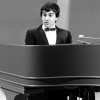


 Buy Now
Buy Now




